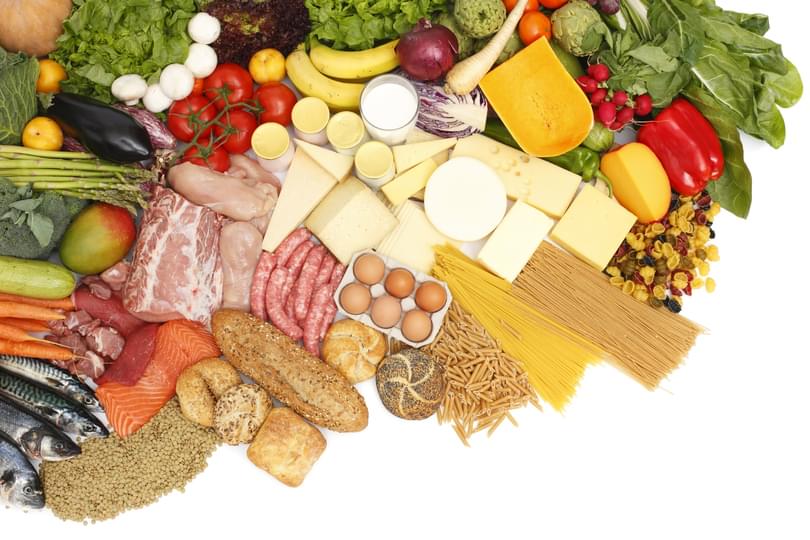
A study into the greenhouse gas emissions caused by different types of diet has for the first time provided quantitative evidence that going meat-free can dramatically reduce environmental impact. The paper, published in the journal Climatic Change, analysed data from the diets of 65,000 meat eaters, fish eaters, vegetarians and vegans, and found the greenhouse gas emissions for a meat-based diet were approximately twice as high as those for vegans, and about 50 per cent higher than for vegetarians.
One of the authors of the paper, Dr Peter Scarborough, spoke to the Oxford Martin School's Communications Officer, Sally Stewart, about the research and its implications.
What led you to undertake this study?
Our research has shown that, in addition to reducing the likelihood of developing cardiovascular disease, changes to diet and nutrition can bring about improvements in a wide range of areas. Because what we eat has such a large carbon footprint associated with it, one of the areas that changing your diet can have an impact on is environmental sustainability. It’s an issue which is only going to become more and more important, and there’s a lot of research taking place at the moment into what a sustainable, healthy diet actually looks like.
So what’s different about this paper?
We’ve known for quite some time about the greenhouse gas intensity of the production of different foods. But what we haven’t had a good grasp on is the difference in the greenhouse gas emissions caused by different diets. In the absence of this data, what researchers have generally done is to construct a vegetarian diet or vegan diet, for instance changing meat with vegetables or cheese, which doesn’t realistically construct what a real vegetarian diet would look like. By collaborating with researchers here in Oxford who are working on cancer epidemiology we have been able to get access to very good data from the EPIC-Oxford Study, which looks at how diet influences the risk of developing cancer. So we didn’t have to construct any diets, these people were actually meat-eaters, or vegetarians or vegans, giving you genuine diet comparisons. The diet data is actually from a while ago and average meat consumption has gone up since then, so if anything the results are actually an underestimation of the impact. And from a previous study, which looked at the effect of applying a greenhouse gas tax to foods, we had the knowledge of the emissions caused by different types of foods.
What impact do you want this research to have?
As I mentioned before there is a push at the moment on trying to design what a healthy sustainable diet is, and making sure that knowledge is included in government advice on eating. This already happens in the Netherlands where the advice is to eat less meat, and in Italy there is government guidance on the sustainability of different food groups. In the UK the Food Climate Research Network is doing a lot of very good work in terms of trying to build a consensus on what a healthy, sustainable diet looks like.
How much impact have government recommendations such as those in the Netherlands and Italy actually had on people’s behaviour?
In terms of sustainability we are not yet sure, but what making this kind of advice part of government guidance does is provide a solid bedrock to create interventions. Until something is enshrined in a recommendation we are still going to be moving around the question of what a sustainable healthy diet is. Once that’s concreted into official advice saying you can reduce your environmental impact and improve your health then you can look at interventions.
What sort of form might these take – are we talking about telling people what they can and can’t eat?
We’re just at the stage of brainstorming about this. You can intervene on lots of different levels - national trade agreements, food labelling, taxation. No-one’s talking about those at the moment because it’s not mainstream enough. What’s important right now is to build the support. Interventions could also be at an individual level, for example with mobile phone apps or building an online social community. You could also look at the institutional level, such as bringing in ‘meat-free Mondays’, or for catering companies to look at providing mainly vegetarian food and having to opt in to have meat. But actually the message from the paper is just to reduce your meat consumption. We’re not telling people they have to give up meat completely; just cutting down makes a big difference.
- Read the original paper in Climatic Change
- New Scientist: Going vegetarian halves CO2 emissions from your food
This opinion piece reflects the views of the author, and does not necessarily reflect the position of the Oxford Martin School or the University of Oxford. Any errors or omissions are those of the author.